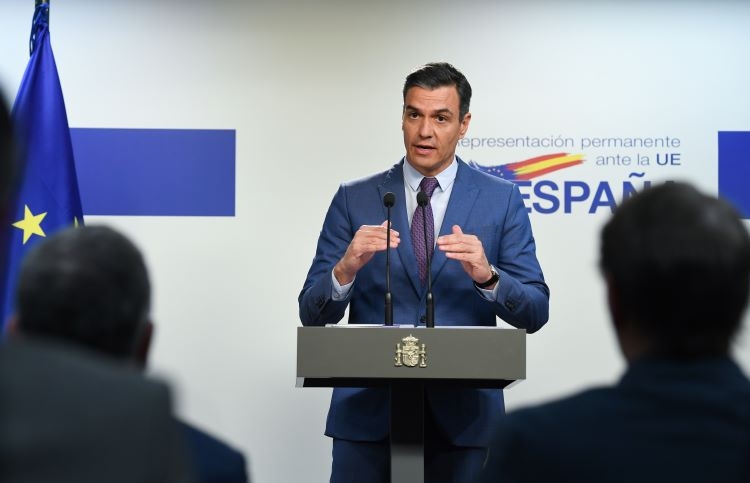Eduardo González
The President of the Government, Pedro Sánchez, will appear this coming Wednesday before the plenary session of the Congress to report on the recent extraordinary European Council, in which the leaders of the European Union urged to “complete and improve the interconnection of the European gas and electricity networks” and to take advantage of “the potential of the Iberian Peninsula to contribute to the security of supply of the European Union”.
Pedro Sánchez requested his appearance immediately before the start of the extraordinary European Council. The head of the Executive will participate again in another European Council meeting at the end of June, coinciding with the end of the French Presidency of the EU Council.
The extraordinary Council, held in Brussels on May 30-31, approved the sixth package of sanctions against Russia, under which Member States commit to boycott imports of oil and oil products “supplied from Russia to Member States” by sea, a measure that “immediately covers more than two-thirds of Russia’s oil imports, cutting off a huge source of funding for its war machine”, and which will be implemented within six to eight months.
However, European leaders agreed to “a temporary exception for crude oil supplied by pipeline” in order to avoid the veto of Hungarian Prime Minister Viktor Orban, the leader closest to Vladimir Putin within the EU and who has even agreed to pay in rubles for the purchase of Russian crude, as demanded by Moscow. The agreement will also allow supplies to the Czech Republic and Slovakia, which, like Hungary, receive oil directly from Russia through the Druzhba pipeline.
As regards the consequences of the conflict in the field of energy, the European leaders urged to “invest in and complete infrastructure for existing and new projects, including liquefied natural gas and electricity interconnections” and to promote the “production of renewable energies”, as well as to take advantage of “the potential of the Iberian Peninsula to contribute to the European Union’s security of supply”.
Spain and Portugal have repeatedly insisted that the Iberian energy hub can be an alternative to energy dependence on Russia because the two countries have ten regasification plants, representing more than half of Europe’s regasification capacity. However, they also warned that for this to be possible it is necessary to complete the energy interconnections between Spain and France.
The debate on energy also included a reflection on the design of the electricity market, which, according to the Spanish government, “does not respond to situations such as the current ones”, so Pedro Sánchez urged to “reform it to adapt it to stress situations and prepare it for a decarbonized economy”. The harmony between Spain and Portugal on energy matters is such that Sánchez, who arrived late in Brussels because of his participation in Madrid in the events marking the 40th anniversary of Spain’s accession to NATO, was represented in the early stages of the Council by the Portuguese Prime Minister, Antonio Costa.
Then, at the request of the Popular Parliamentary Group, Pedro Sanchez will appear on Wednesday to “explain the new partnership for the 21st century that he established during his visit to Rabat and the consequences that this has caused in the relationship with Algeria”. Subsequently, the Minister of Foreign Affairs, José Manuel Albares, will answer a question from MP José Antonio Bermúdez de Castro, of the Popular Parliamentary Group, on “how he assesses the snub of members of the Government to the events of the 40th anniversary of Spain’s accession to NATO”.






